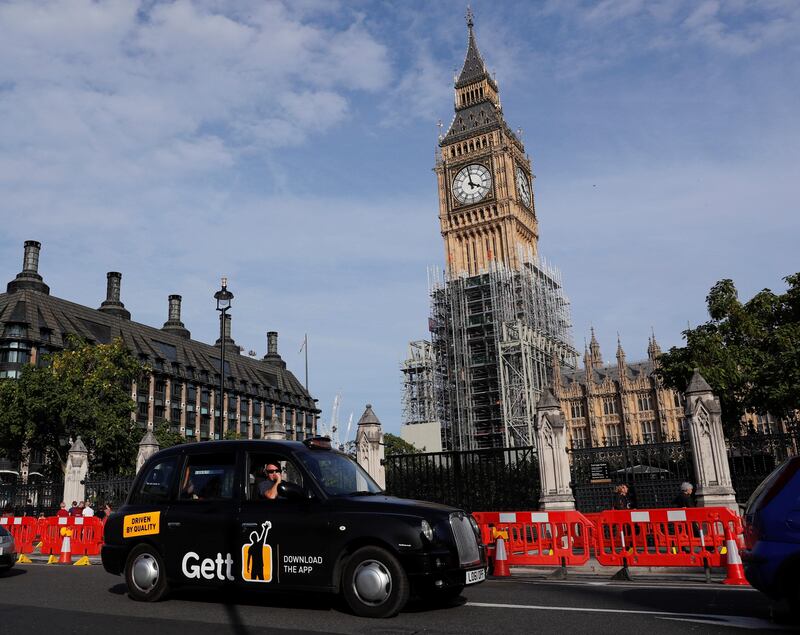Like a mass of prehistoric creatures suddenly revealed, London’s black cab drivers took to Twitter this week to gloat about the impending ban on Uber, the San Francisco-based car transport company which serves 3.5 million customers in the British capital and employs some 40,000 drivers.
Ever since Uber emerged as an effective rival to the extortionately expensive black cabs, their drivers have lobbied the British government about what they see as unfair competition.
Their crude use of another San Francisco based app this week was ironic, but not pretty. It was not a pretty sight. In fact, the one-dimensional and often racist statements made on Twitter – repeating and expanding on statements made in British tabloid newspapers about Uber UK drivers being “rapists” and “terrorists” and telling them to “go back home” and worse – predictably mirrored the embarrassingly widespread ignorance uncovered by last year’s Brexit referendum.
The Union Jack-wielding black cab drivers protest that their training, navigational ability, safety and personnel standards are superior, and Transport for London, the government body which is by its own admission “the monopoly provider of transport in London” and receives 40 per cent of its annual 11.5 billion pound budget from fares, partially agrees, declaring this week that Uber was not “fit and proper” to be granted a licence after September 30.
Uber UK, which plans to appeal, can continue to operate until all appeals processes are exhausted, and talks may yet see the company make improvements to allow it to continue operating.
One of the reasons London’s regulators gave for not renewing Uber’s licence is its allegedly lax handing of reports of sexual assault of passengers by drivers. Between May 2015 and May 2016, 32 Uber drivers were investigated by police for alleged rape or sexual assault. Yet the main reason many women use the service in a city of almost nine million people is because they cannot afford to get home safely any other way. For people living or staying in outlying areas of the capital, night buses and trains are completely inadequate and black cab fares utterly unaffordable. An online petition this week demanding a reversal of the licensing decision has garnered over 800,000 signatures.
The last time I used a black cab, splashing out on a short trip home from Abu Dhabi last summer, I was disappointed. The driver drew a blank when I gave him an uncomplicated street name in N1, about 10 minutes’ drive away, suggesting that their much-touted “knowledge” is on the wane.
With cab rides often being twice the price of Uber’s – a fare from London’s Heathrow Airport to central London will cost you up to £98 (Dh485) – for which you could fly to and from another European city and in some cases get a complete holiday package for a week – black cabs are on the brink of being obsolete.
Uber is also useful when you travel all over the world, since users pay via the app, so no local cash is needed.
It’s a shame a symbol of London is in decline, but there could be a positive on the horizon. The fall in the value of the pound caused by Brexit may yet make black cabs affordable to the very foreigners that keep the city going.
__________________
Read more:
[ Big tech has a big problem, which means we all do ]
[ Uber claims Paris prosecutors bent rules for criminal conviction ]
[ Uber ban: London's mayor 'pleased' as taxi firm's CEO issues apology ]
__________________





